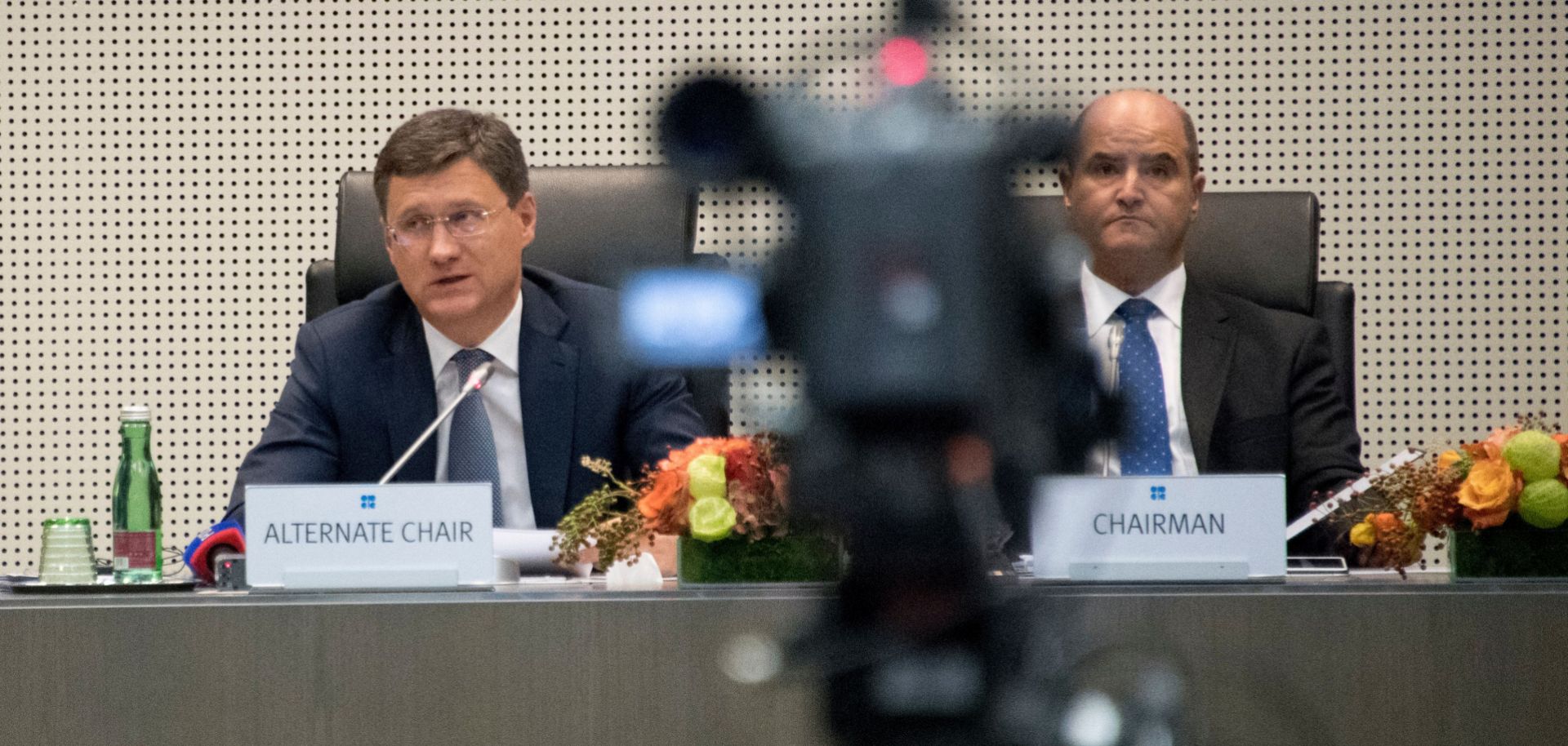ASSESSMENTS
OPEC: An Oil Alliance Struggles Against Its Own Potential
Sep 22, 2017 | 23:41 GMT

Russian Energy Minister Alexander Novak (left) and Kuwaiti Oil Minister Essam al-Marzouq oversee the OPEC meeting in Vienna on Sept, 22, 2017. Members of the organization and its allies reviewed progress on their 2016 agreement to curb oil output.
(JOE KLAMAR/AFP/Getty Images)
Highlights
- Saudi Arabia and Russia will continue pushing to extend the deal to cut production by major oil producers, but in 2018 they will turn their attention to an exit strategy from the agreement.
- Libya and Nigeria, which have collectively boosted oil production by almost 1 million barrels per day this year, have worked against the deal, but their production has now plateaued.
- The aim of the deal is not to boost oil prices but to remove the risk of a collapse.
Subscribe Now
SubscribeAlready have an account?
